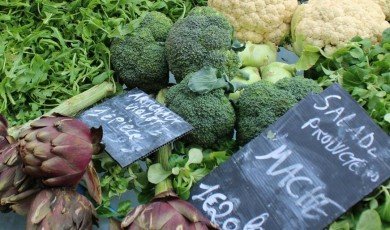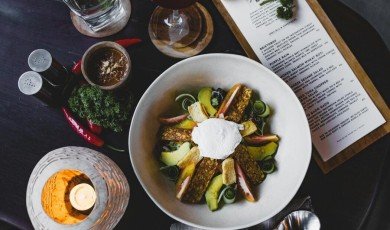
The Netherlands is world-renowned for its culinary diversity, blending culinary artistry with a rich tapestry of historical influences. Amsterdam’s canal-side eateries, Utrecht’s bustling café scene, and Rotterdam’s avant-garde kitchens all contribute to the country’s gastronomic allure. Yet, behind every menu and chef’s creation, there is a vital, often-overlooked element: clear and effective communication. This necessity is heightened when food, health, and culture intersect—a space where medical translation services can make a transformative impact.
As global travel and migration grow, so does the demand for accessible and safe dining experiences. Restaurants in the Netherlands cater not only to locals but also to an international audience—tourists, expatriates, and students from diverse backgrounds. Here, understanding dietary restrictions, allergy requirements, and health-related preferences is not just good hospitality—it’s essential to guest safety and satisfaction. The rise of life sciences translation services in the restaurant industry empowers establishments to bridge cultural gaps, foster inclusiveness, and unlock new levels of culinary excellence.
The Role of Medical Translation Services in Dutch Restaurants
1. Navigating Dietary Restrictions and Allergies
In an era of heightened health awareness, Dutch diners and international guests increasingly bring with them a range of special dietary needs—gluten intolerance, nut allergies, lactose sensitivities, vegetarian or vegan preferences, religious dietary laws, and more. For a restaurant, mistranslating these requirements can lead to severe health risks and reputational damage. Here is where medical translation services provide critical support.
Professional translators with a background in medical and life sciences ensure that menu items, ingredient lists, and allergy warnings are accurately conveyed across multiple languages. For example, a peanut allergy warning in English must translate perfectly into Dutch, German, French, and Mandarin, preserving both clarity and urgency. This proficiency helps restaurants cater safely to diverse clientele, minimizing the risk of dangerous misunderstandings.
2. Life Sciences Translation Services: Beyond the Menu
Life sciences translation services extend far beyond menus and signage. They span employee health and safety protocols, staff training materials, and communication with suppliers about complex food ingredients. In the Netherlands, where regulations regarding allergens (such as the EU’s Food Information for Consumers Regulation) are strict, precise translation of these legal texts and hazard analyses is crucial.
For instance, when sourcing ingredients with potential risks (like shellfish or food colorings), clear documentation is necessary across the supply chain. Life sciences translators ensure accuracy from the moment ingredients leave a producer to when dishes reach the customer’s table. By professionally handling technical terms and medical language, translation experts support not only legal compliance but also foster a company culture rooted in health awareness and trust.
3. Creating Inclusive Culinary Experiences
Multilingualism is woven into daily Dutch life, particularly in cosmopolitan cities. Visitors often encounter menus in at least two languages. But what about less commonly spoken tongues? Here, trained medical translators can make the difference between a guest feeling welcome or excluded.
By providing translated nutritional information, allergy notices, and wellness guidelines, restaurants demonstrate a commitment to the wellbeing of every patron. Language-sensitive approaches reduce the risk of miscommunication, ensuring visitors from Japan to Brazil feel understood and valued. This enhancement of hospitality builds customer loyalty and positive word-of-mouth—a true cultural asset in the highly competitive restaurant industry.
4. Combining Innovation and Care in Culinary Ventures
The culinary landscape of the Netherlands thrives on innovation. Concepts like fusion eateries, plant-based menus, and health-focused dining are quickly gaining popularity. These trends often introduce new ingredients, cooking methods, and wellness claims that need to be clearly and accurately described to guests from diverse linguistic backgrounds.
Medical translation services step in to facilitate new launches, collaborations with international chefs, or the adaptation of international recipes. They also support accurate labeling for nutritional values and health risks, crucial for food tech startups or restaurants offering functional foods.
5. Educating Restaurant Staff and Engaging Multinational Teams
Restaurants in the Netherlands frequently employ staff from across Europe and beyond. Training these multilingual teams on best practices in food handling, allergen awareness, first aid, and sanitation requires clear and effective communication. Life sciences translation services provide professionally crafted training manuals, safety protocols, and incident response guides, empowering employees to deliver consistently excellent—and safe—service.
Equipping waitstaff and kitchen personnel to confidently assist guests with medical concerns or dietary restrictions is not just about compliance; it is a strategic investment in the customer experience. Multicultural teams, supported by clear translated materials, become stronger, more unified, and attuned to the diverse needs of their clientele.
Bridging Health, Hospitality, and Global Culture
As Dutch restaurants continue to rise on the world’s culinary stage, their commitment to hospitality must be matched by an unwavering dedication to safety and inclusivity. The intersection of food and health is no longer a niche concern, but a central theme in shaping modern dining. Through the support of medical translation services and high-quality life sciences translation services, establishments can ensure that health-focused information, regulatory requirements, and customer preferences transcend language barriers.
By investing in reliable and culturally sensitive translation, restaurants in the Netherlands transform every meal from a simple act of eating into a celebration of diversity, care, and connection. In bridging the gap between kitchen expertise and the unique needs of every diner, medical and life sciences translation services are not just enablers—they are essential pillars of a thriving, globalized restaurant culture.
In a world where health and hospitality increasingly go hand in hand, ensuring clear, accurate communication is the key ingredient for success—making the Dutch dining experience memorable, delicious, and safe for everyone, from kitchen to culture.







